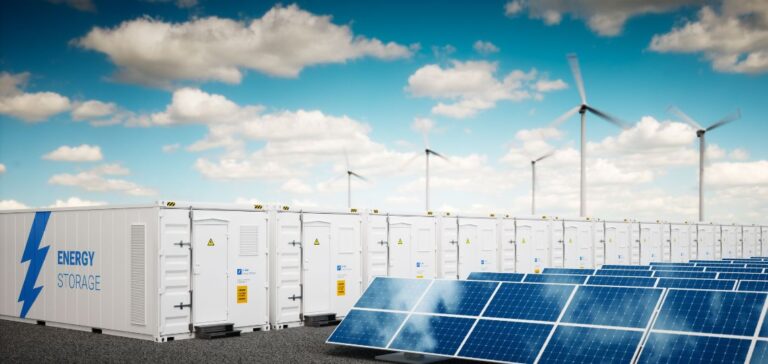E.ON and Quinbrook Infrastructure Partners jointly invest in a large-scale energy storage project in the UK. On the site of the former Uskmouth coal-fired power station in Wales, two large-scale facilities, each with a capacity of 230 megawatt-hours and 115 megawatts, are currently under construction. E.ON acquires one of the two units, marking its first foray into energy storage on this scale. This partnership represents a significant step forward in the UK’s decarbonization efforts.
Contributing to the energy transition
The storage facility will offer balancing energy from the first quarter of 2025, also integrating with the wholesale market. With a capacity equivalent to powering 35 million smartphones, this project underlines the importance of flexible storage solutions. Quinbrook’s Keith Gains highlights the company’s alignment with the Sustainable Development Goals and its contribution to the UK government’s Levelling Up program.
A vision shared by all partners
E.ON’s Nadia Jakobi highlights the energy transition as a vector for sustainable growth. The partnership with Quinbrook, which also sees the transition as an opportunity, is strategic. It’s not just a question of climate protection, but also of keeping energy prices affordable and guaranteeing security of supply. Large-scale storage solutions are crucial to achieving these objectives.
Economic impact and use of existing infrastructure
The Uskmouth project will transform the site into a sustainable energy park, supporting the innovative industry of the future. Involving local contractors and using existing infrastructure, such as power grid connections, minimizes the impact of construction. The project has already supported around 130 jobs in 2023 and plans to create a further 140 in 2024, strengthening the local economy.
The advantages of large-scale storage systems
Energy storage systems like Uskmouth’s play a central role in stabilizing the power grid. They balance out fluctuations in renewable energy production and prevent overloads. What’s more, they have a positive impact on energy price management, helping companies like E.ON to smooth out price fluctuations on the electricity market, thus benefiting consumers.





















